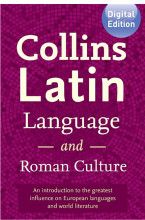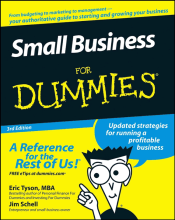Summary: Collins Latin Language And Roman Culture | 9780007502400 | Collins
- This + 400k other summaries
- A unique study and practice tool
- Never study anything twice again
- Get the grades you hope for
- 100% sure, 100% understanding
Read the summary and the most important questions on Collins Latin Language and Roman Culture | 9780007502400 | Collins
-
1 Introduction
This is a preview. There are 1 more flashcards available for chapter 1
Show more cards here -
Remember that hou NEVER use the verb esse to translate was or were in forms like was reading or were walking and so on. What do you do instead?
You change the Latin verb. -
2 Latin Pronunciation
-
2.3 Stress
This is a preview. There are 1 more flashcards available for chapter 2.3
Show more cards here -
Where does the stress fall in words of two syllables?
On the first syllable (amo, amas, amat) -
Where does the stress fall in words of three or more syllables?
On the third syllable from the end (amic[i]tia, imp[e]rium, s[u]spicit). -
3 Latin Language
-
3.1 Nouns
This is a preview. There are 1 more flashcards available for chapter 3.1
Show more cards here -
What is a noun?
A noun is a 'naming' word for:- a living being (for example, girl, Hercules, dog)
- a place or a thing (for example, house, Pompeii, table)
- an activity, an event or an idea (for example, sleep, dinner party, anger)
-
What are the genders of Latin nouns?
- Masculine
- Feminine
- Neuter
-
What are the six main cases in Latin?
- Nominativus
- Vocativus
- Accusativus
- Genitivus
- Dativus
- Ablativus
-
3.1.1 Gender
-
Which endings are often found on masculine nouns?
- us - cibus - food
- er - pater - a father
- or - mercator - a merchant
-
Which endings are often found on feminine nouns?
- a - puella - a girl
- tas - veritas - truth
- tudo - pulchritudo - beauty
- io - regio - a region
- es - fides - faith
-
Which endings are often found on neuter nouns?
- um - templum - a temple
- men - nomen - a name
- e - cubile - a couch/bed
- al - tribunal - a tribunal
- u - cornu - a horn
-
3.1.2 Forming Plurals
-
How are most form their plural in Latin?
By changing their ending. The ending is determined by what declension the noun belongs to.
- Higher grades + faster learning
- Never study anything twice
- 100% sure, 100% understanding

































